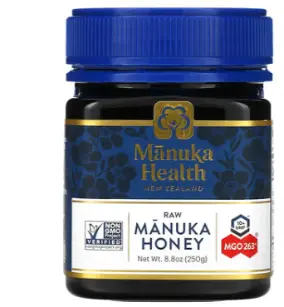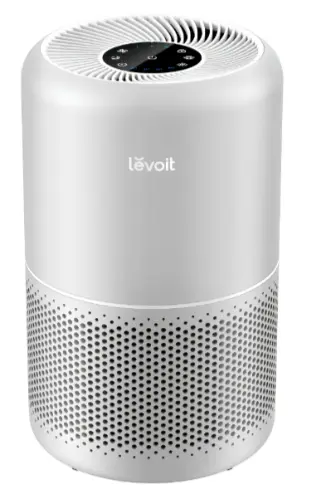Have you ever felt like spring, instead of bringing joy, just brings endless sneezes and itchy eyes? I understand how frustrating it can be to watch everyone else enjoy the sunshine while you’re stuck indoors, battling congestion and feeling miserable. You’re not alone in experiencing the discomfort of seasonal allergies. We’ve all been there, feeling like our immune system has declared war on the very air we breathe. But here’s the good news: we don’t have to surrender to the sniffles!

Seasonal allergies, also known as allergic rhinitis or hay fever, occur when your immune system overreacts to harmless substances like pollen, mold spores, or pet dander. When these allergens enter your body, your immune system releases histamine, leading to those familiar symptoms: sneezing, runny nose, itchy eyes, and congestion. (Mayo Clinic, https://www.mayoclinic.org/diseases-conditions/hay-fever/symptoms-causes/syc-20332516)
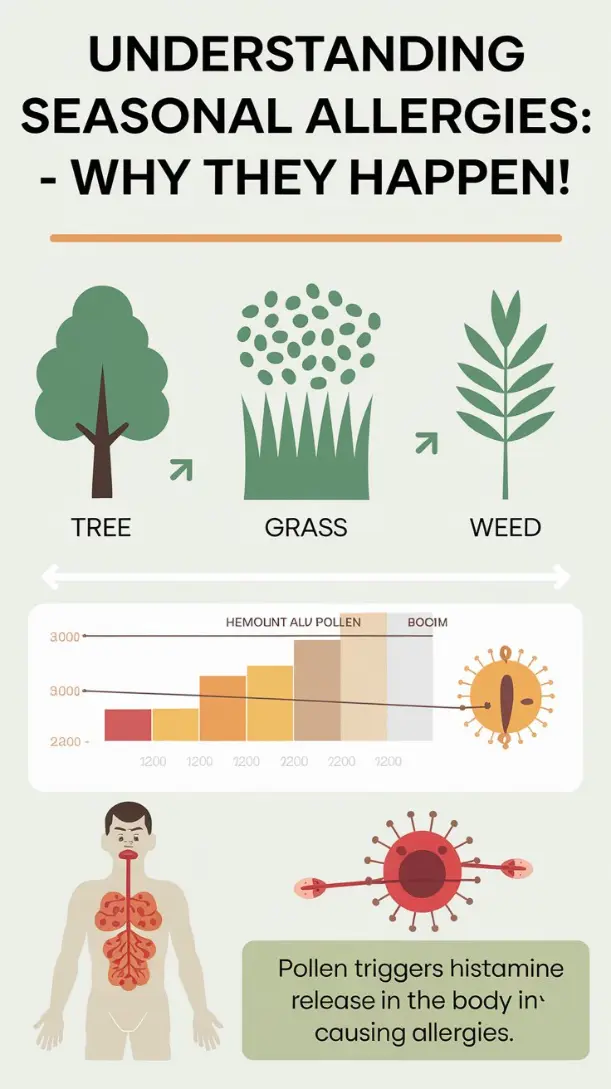
Many people turn to over-the-counter medications for relief, and while those can be helpful, we can also explore natural remedies to support our bodies during allergy season. Think of it as giving your immune system a gentle nudge in the right direction.
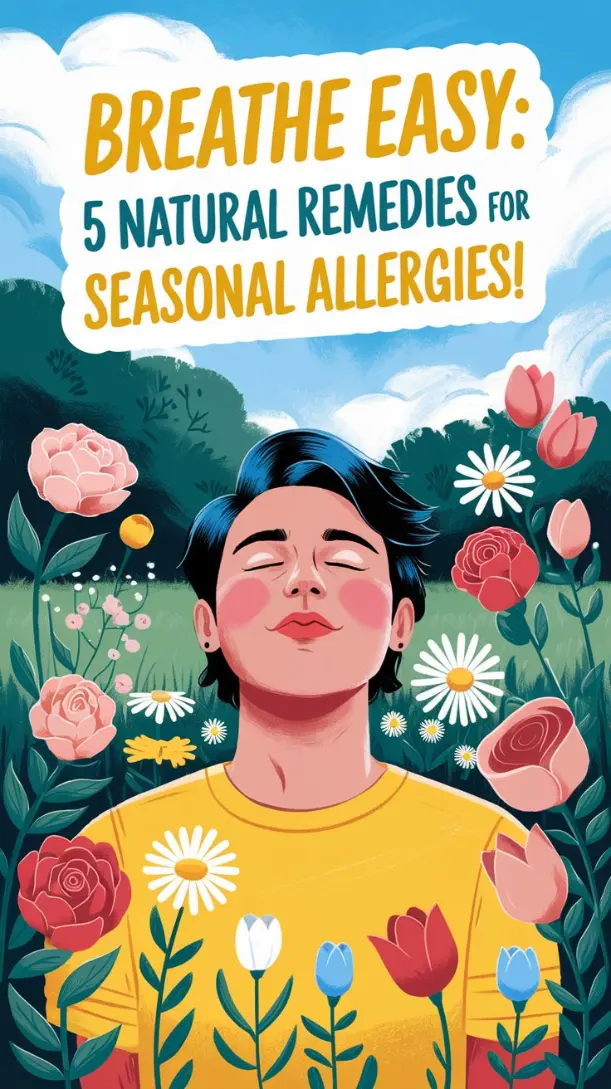
In this article, we’ll explore 5 effective natural remedies to alleviate seasonal allergy symptoms, offering a holistic approach to wellness. We’ll chat about simple, accessible solutions that you can incorporate into your daily routine to find relief and enjoy the beauty of the seasons without the constant discomfort. Let’s dive in and discover how we can naturally ease those allergy woes together!
Understanding Seasonal Allergies: What’s Really Going On?
Before we dive into natural remedies, it’s helpful to understand what’s happening in your body during allergy season. Think of it as peeking behind the curtain to see the inner workings of those sneezes and sniffles. We’re going to break down the basics so you can feel more informed and empowered to tackle those pesky allergies.
What are Allergens?
Allergens are simply substances that your immune system identifies as harmful, even though they’re usually harmless. Think of them as uninvited guests that your body mistakes for intruders. Common culprits include pollen from trees, grasses, and weeds, mold spores floating in the air, and even tiny particles of pet dander. These microscopic particles can travel through the air and land on your skin, in your eyes, or in your nasal passages, triggering an allergic reaction.
When these allergens enter your body, your immune system kicks into high gear, releasing antibodies to fight them off. This process is usually a good thing, protecting you from actual threats like bacteria or viruses. However, in the case of allergies, your immune system is overreacting to something that isn’t truly dangerous.
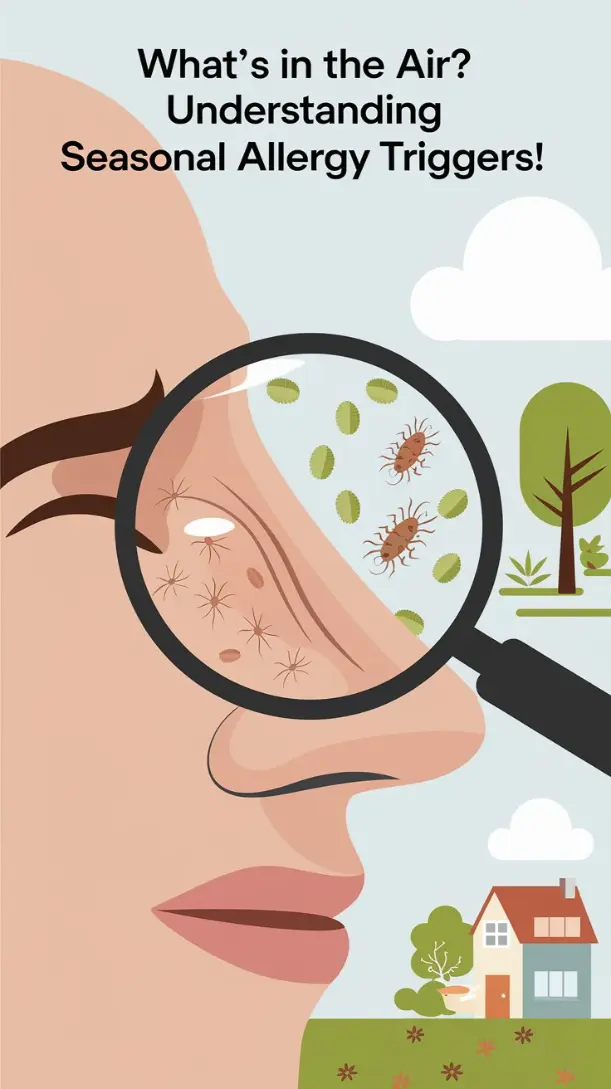
The Immune System’s Response: Histamine and Inflammation
When your immune system detects an allergen, it releases a chemical called histamine. Histamine is the main player behind those uncomfortable allergy symptoms. It causes your blood vessels to dilate, leading to swelling and inflammation in your nasal passages, sinuses, and eyes. This is why you experience congestion, a runny nose, and itchy, watery eyes.
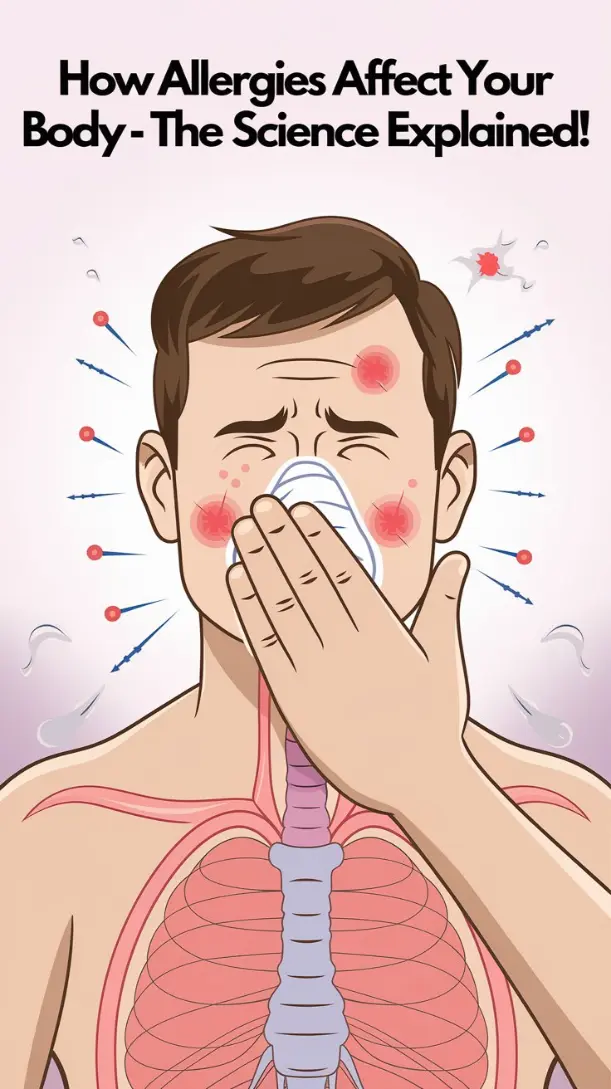
This inflammatory response is also why you might feel fatigued or have a headache during allergy season. Your body is working overtime to combat the perceived threat, leaving you feeling drained. It’s like your immune system is throwing a big party, and unfortunately, you’re the one cleaning up the mess.
Common Seasonal Allergy Triggers
Different allergens are prevalent at different times of the year. In the spring, tree pollen is a major trigger. As summer rolls around, grass pollen takes center stage. And in the fall, ragweed pollen is the main culprit. Knowing your triggers can help you anticipate when your symptoms might flare up.
Here’s a quick breakdown:
- Spring: Tree pollen (oak, maple, birch)
- Summer: Grass pollen (timothy, rye)
- Fall: Ragweed pollen
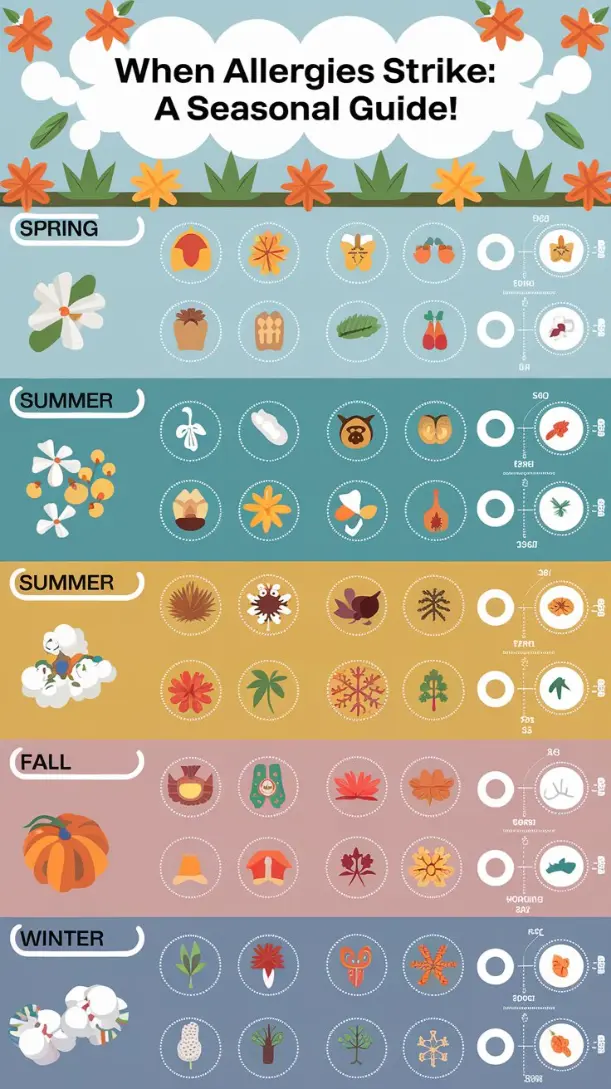
Keeping an eye on the pollen count in your area can also be helpful. Many weather apps and websites provide daily pollen forecasts, allowing you to plan your activities accordingly.
Addressing Your Burning Questions
Let’s address some of the most common questions people have about seasonal allergies:
What are the worst months for seasonal allergies?
The worst months for allergies vary depending on your location and the specific allergens you’re sensitive to. Generally, spring, summer, and fall are peak allergy seasons. In many regions, April through June are tough for tree pollen, June through August for grass pollen, and August through October for ragweed.
How do I know if I have seasonal allergies?
Common symptoms include sneezing, runny nose, congestion, itchy eyes, and a scratchy throat. If these symptoms occur at the same time each year, particularly during peak pollen seasons, you likely have seasonal allergies. A doctor can perform allergy testing to confirm your triggers.
What is the fastest way to get rid of seasonal allergies?
While natural remedies can provide relief, they may not offer immediate results. Over-the-counter antihistamines and decongestants can provide faster relief for acute symptoms. However, for long-term management, a combination of natural remedies and medical advice is often most effective.
5 Natural Remedies to Ease Your Seasonal Allergy Symptoms
Now that we understand what’s happening in our bodies during allergy season, let’s explore some gentle and effective natural remedies. These solutions can work alongside conventional treatments to provide you with more comprehensive relief. Remember, it’s always best to consult with your doctor before starting any new regimen, especially if you have existing health conditions.
A. Local Honey: Sweet Relief
Have you ever heard that local honey can help with allergies? It’s more than just an old wives’ tale! Local honey contains trace amounts of pollen from the plants in your area. By consuming small amounts of this pollen, your body can gradually build up a tolerance, much like a natural form of immunotherapy.
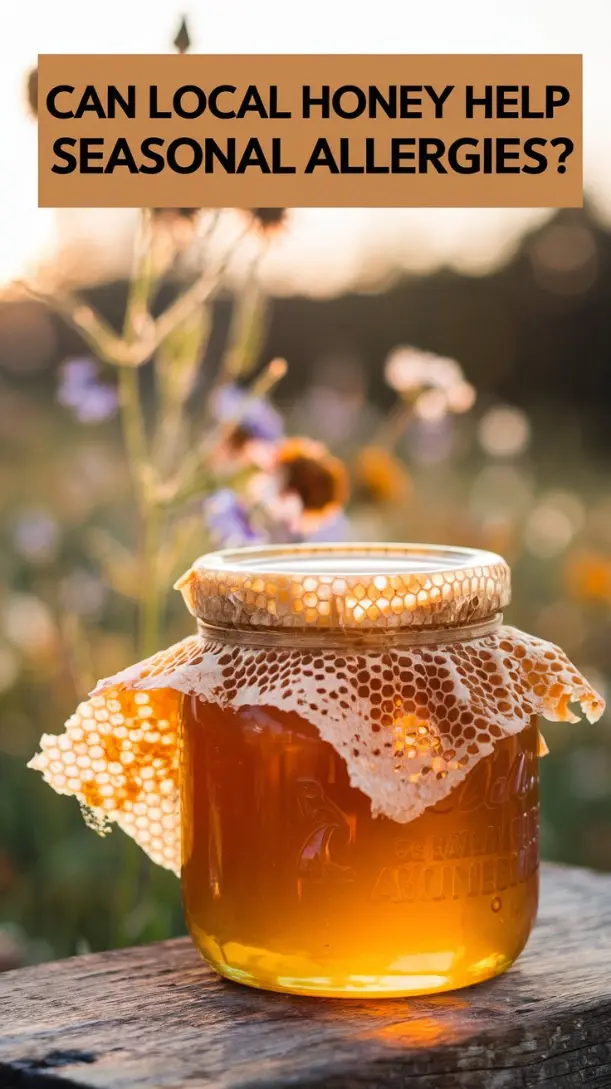
For best results, choose raw, unfiltered honey from local apiaries. Start with a small amount, like a teaspoon a day, and gradually increase it. You can add it to your tea, toast, or enjoy it straight from the spoon. Consistency is key, so aim to consume local honey regularly, ideally starting a few months before allergy season begins. You can find high-quality local honey from here
B. Nettle Leaf: Nature’s Antihistamine
Nettle leaf, also known as Urtica dioica, is a powerful herb with natural anti-inflammatory and antihistamine properties. It can help reduce the release of histamine and alleviate allergy symptoms like sneezing, itching, and congestion.
You can enjoy nettle leaf as a tea or take it in supplement form. To make nettle leaf tea, steep 1-2 teaspoons of dried nettle leaf in hot water for 10-15 minutes. Strain and enjoy. If you prefer supplements, follow the dosage instructions on the product label.
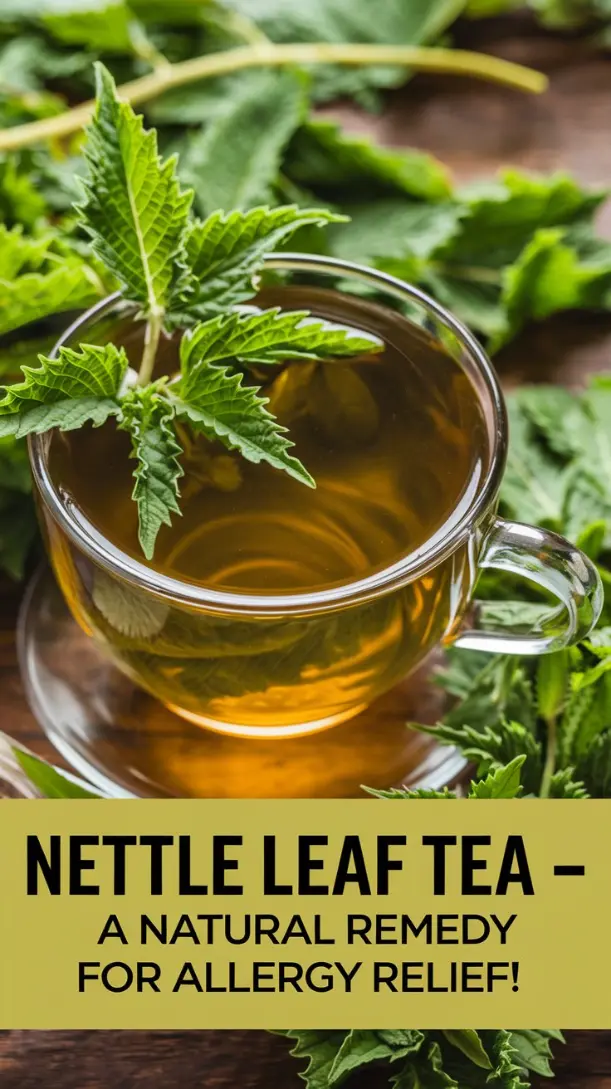
C. Quercetin: A Mast Cell Stabilizer
Quercetin is a bioflavonoid found in various fruits and vegetables, including apples, onions, and berries. It acts as a mast cell stabilizer, meaning it helps prevent the release of histamine.
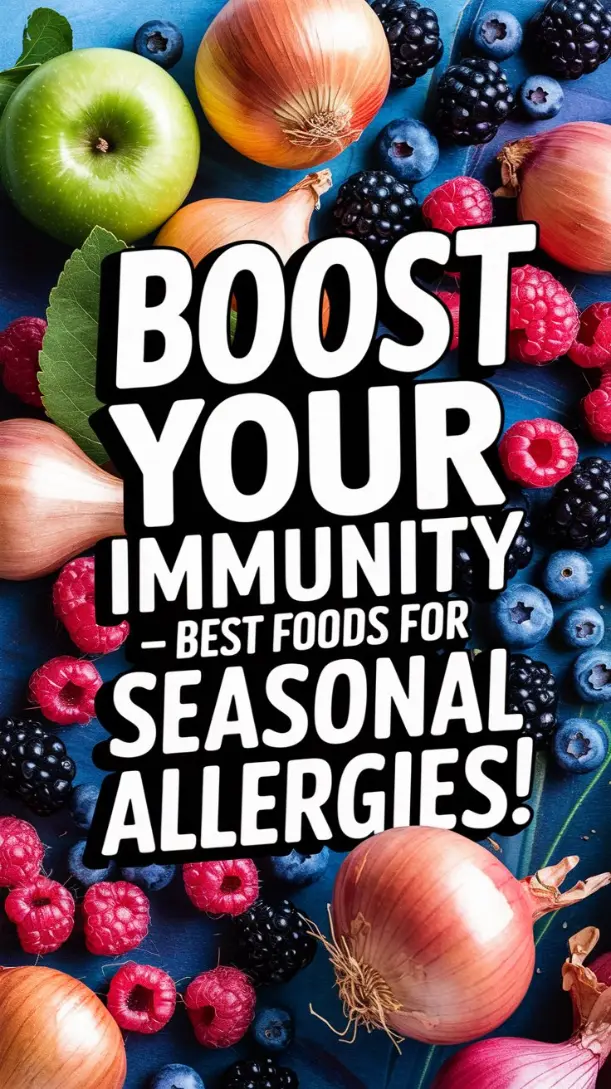
To increase your quercetin intake, incorporate these foods into your diet or consider taking a quercetin supplement. It’s often recommended to take quercetin with vitamin C, as it enhances its absorption.
D. Nasal Saline Rinse: Clearing the Airways
Nasal saline rinses, using a neti pot or nasal spray, can help clear nasal passages of allergens and mucus. This can significantly reduce congestion and improve breathing.
To use a neti pot, mix warm distilled or sterile water with a saline solution. Tilt your head to one side and pour the solution into one nostril, allowing it to drain out the other. Repeat on the other side. For nasal sprays, follow the instructions on the product label.
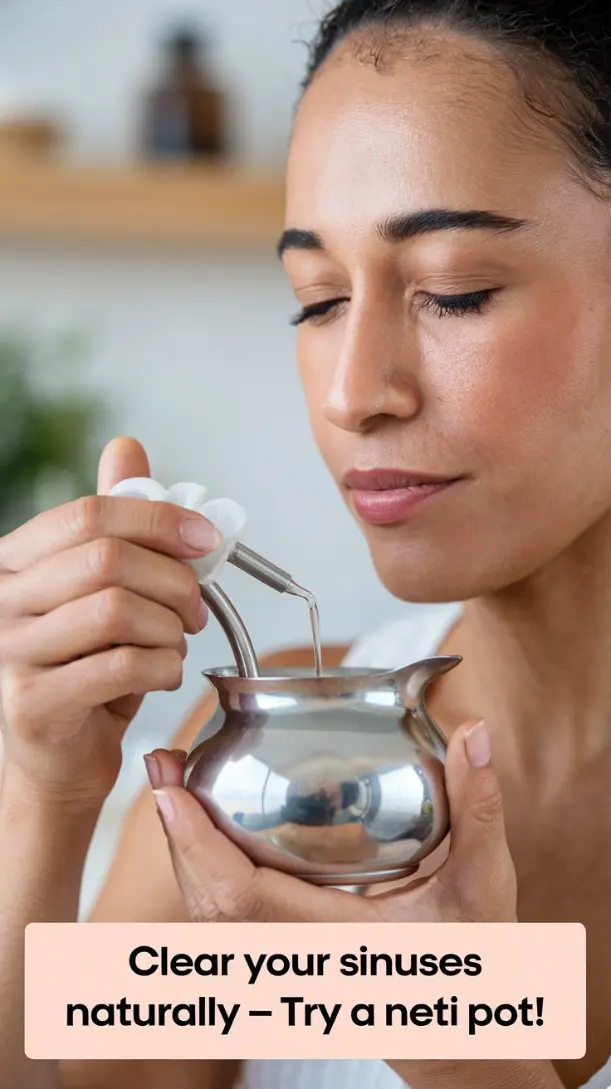
E. Essential Oils: Aromatherapy for Allergy Relief
Certain essential oils, like peppermint, lavender, and eucalyptus, can provide relief from allergy symptoms. Peppermint oil can act as a natural decongestant, lavender oil can calm inflammation, and eucalyptus oil can help clear nasal passages.
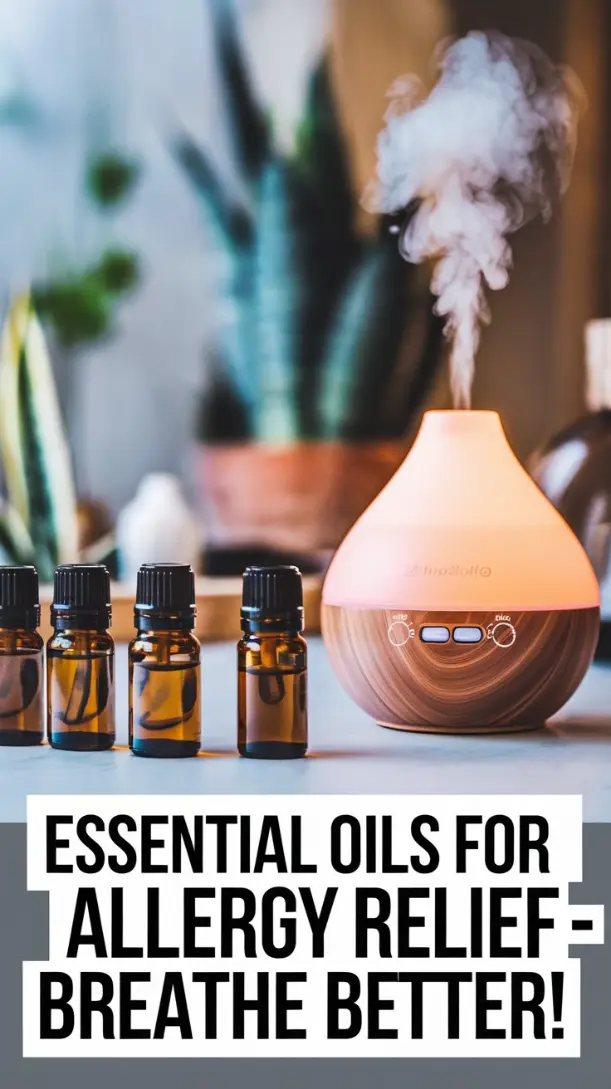
You can use essential oils in a diffuser to create a soothing atmosphere or apply them topically after diluting them with a carrier oil like coconut or jojoba oil. Always perform a patch test before applying essential oils to your skin.
Additional Natural Support: Beyond the Basics
We’ve explored some key natural remedies, but there’s more you can do to support your body during allergy season. Let’s talk about dietary and lifestyle changes that can make a significant difference.
Dietary Recommendations: Fueling Your Immune System
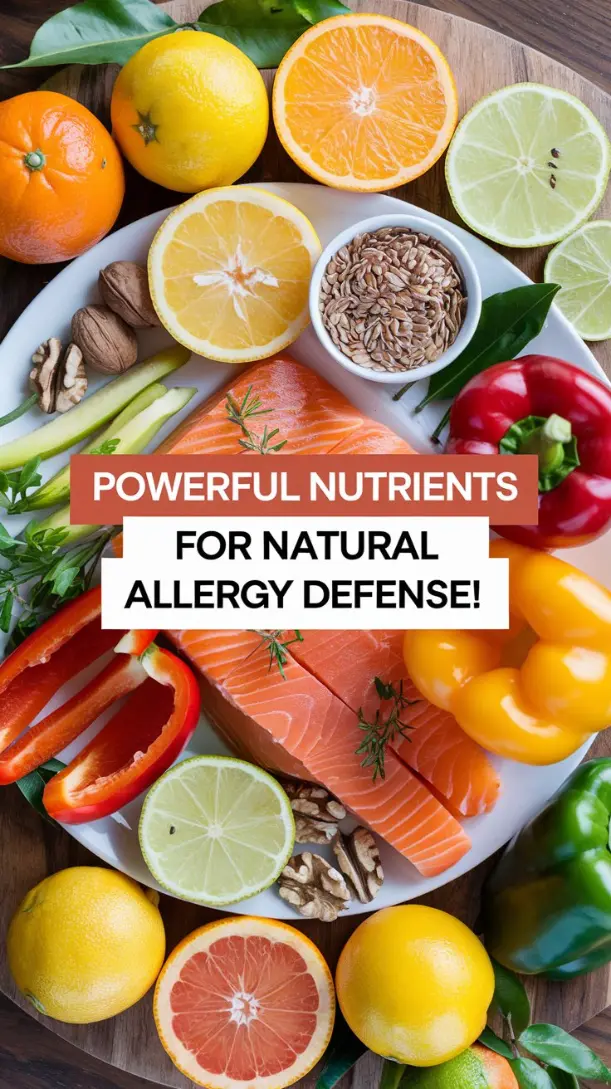
A healthy diet plays a crucial role in supporting your immune system and reducing inflammation. Incorporating foods rich in vitamin C and omega-3 fatty acids can be especially beneficial.
Vitamin C, found in citrus fruits, berries, and leafy greens, acts as a natural antihistamine and immune booster. Omega-3 fatty acids, found in fatty fish, flaxseeds, and walnuts, have anti-inflammatory properties that can help soothe irritated airways. Consider adding these foods to your daily meals to strengthen your defenses against allergies.
Lifestyle Adjustments: Minimizing Exposure
Reducing your exposure to allergens can significantly alleviate your symptoms. Simple adjustments to your daily routine can make a big difference.

Consider using air purifiers with HEPA filters to remove allergens from your indoor environment. Regularly cleaning your home, especially dusting and vacuuming, can also help minimize allergen buildup. Showering and changing clothes after spending time outdoors can prevent pollen from clinging to you. Check out the best air purifiers here
Addressing More Common Concerns
Let’s address a couple more common questions:
What foods help with seasonal allergies?
As mentioned earlier, foods rich in vitamin C and omega-3 fatty acids are excellent choices. Additionally, foods with natural anti-inflammatory properties, like ginger and turmeric, can be beneficial. Consider incorporating these into your daily diet to support your immune system.
Does exercise help with allergies?
While exercise can be beneficial for overall health, it can exacerbate allergy symptoms for some individuals. During intense exercise, you may breathe more deeply, inhaling more allergens. However, moderate exercise can help improve circulation and reduce stress, which can indirectly support your immune system. If you experience allergy symptoms during exercise, consider exercising indoors or during times when pollen counts are lower.
When to Seek Professional Help: Knowing Your Limits
While natural remedies can be incredibly helpful, it’s essential to recognize when your symptoms might require professional medical attention. We want to empower you to take control of your health, but also ensure you’re aware of when to seek expert guidance.
Recognizing Severe Allergy Symptoms
Seasonal allergies can range from mild discomfort to severe reactions. It’s crucial to be aware of the signs that indicate your symptoms are beyond the scope of home remedies. Severe allergy symptoms can include difficulty breathing, wheezing, chest tightness, or swelling of the face, lips, or tongue. These symptoms may indicate anaphylaxis, a life-threatening allergic reaction that requires immediate medical attention.

If you experience any of these severe symptoms, do not hesitate to seek emergency medical care. Prompt treatment can prevent serious complications and ensure your safety. It’s always better to err on the side of caution when it comes to your health.
The Importance of Consulting an Allergist or Healthcare Provider
While natural remedies can complement medical treatment, they should not replace professional medical advice. Consulting an allergist or healthcare provider can help you identify your specific allergens and develop a personalized treatment plan. They can also provide prescription medications, such as antihistamines or corticosteroids, if needed.

A healthcare provider can also help you differentiate between seasonal allergies and other conditions that may cause similar symptoms, such as a cold or sinus infection. They can perform allergy testing and provide accurate diagnoses. Regular check-ups can help you manage your allergies effectively and improve your overall quality of life.
When Natural Remedies Might Not Be Sufficient
Natural remedies can be effective for mild to moderate allergy symptoms. However, they may not provide sufficient relief for everyone, especially those with severe allergies or underlying health conditions. If your symptoms persist or worsen despite using natural remedies, it’s time to seek professional help.

Additionally, if you’re pregnant, breastfeeding, or have chronic health conditions, it’s essential to consult with your doctor before trying any new remedies, including natural ones. They can help you assess the risks and benefits and ensure that the remedies are safe for you.
Conclusion: Finding Relief and Enjoying the Seasons
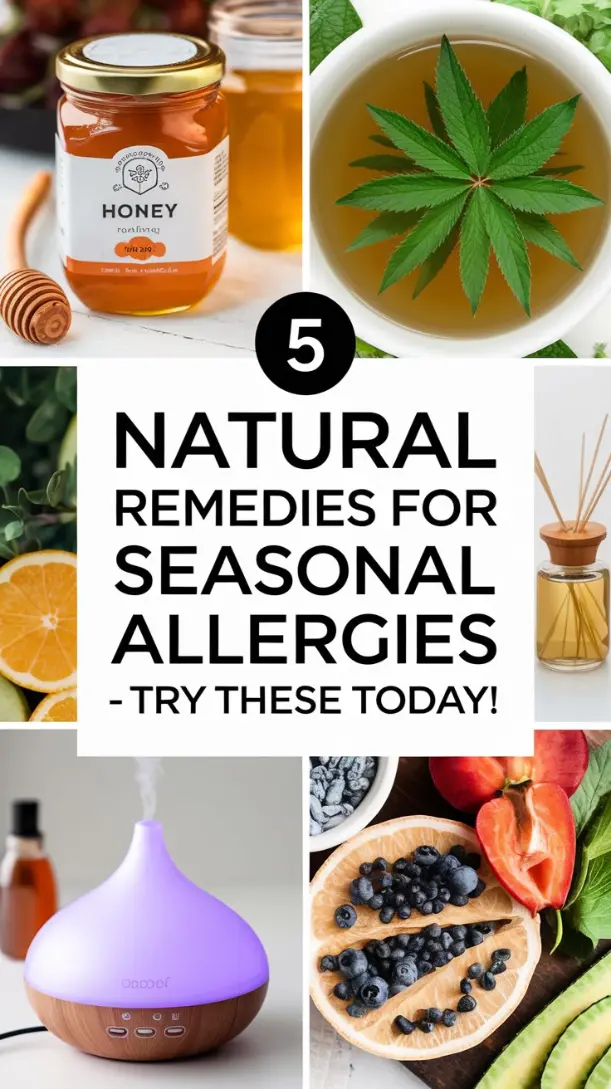
We’ve covered a lot of ground today, from understanding the inner workings of your immune system to exploring a variety of natural remedies for seasonal allergies. Let’s recap:
- We learned that seasonal allergies occur when your immune system overreacts to harmless substances like pollen, triggering a cascade of symptoms.
- We explored 5 natural remedies: local honey for gentle desensitization, nettle leaf for its antihistamine properties, quercetin to stabilize mast cells, nasal saline rinses to clear nasal passages, and essential oils for aromatherapy relief.
- We discussed the importance of supporting your immune system through a healthy diet rich in vitamins and omega-3s, and making lifestyle adjustments like using air purifiers and minimizing allergen exposure.
- Finally, we emphasized the importance of consulting a healthcare professional for personalized advice and to address any severe symptoms.
Remember, this information is for educational purposes only and should not be considered medical advice. Always consult with a qualified healthcare provider for any health concerns.
Get your Evidence-Based Herbal Remedies E-book, this eBook will teach you how to use natural herbs for different ailments, including seasonal allergies, with step-by-step recipes, click here or below to download your eBook.
I encourage you to try these natural remedies as part of a holistic approach to managing your seasonal allergies. Start with one or two remedies and gradually incorporate others to see what works best for you. Listen to your body, and don’t hesitate to adjust your approach as needed.

I’d love to hear about your experiences! Have you tried any of these remedies? Do you have any other tips for managing seasonal allergies? Share your thoughts and questions in the comments below.
Let’s work together to find relief from those pesky allergies and enjoy the beauty of every season!


